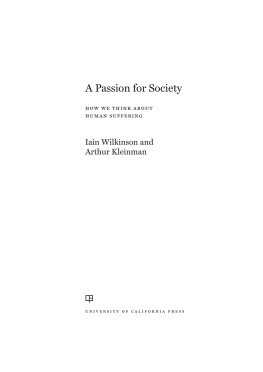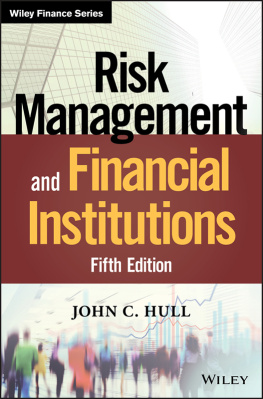RISK, VULNERABILITY AND EVERYDAY LIFE
It is now sociological common sense to declare that, in everyday life, large numbers of people approach matters of work, family life, trust and friendship with risk constantly in mind. This book provides an introductory overview and critical assessment of this phenomenon. Iain Wilkinson outlines contrasting sociological theories of risk, and summarises some of the principle discoveries of empirical research conducted into the ways people perceive, experience and respond to a world of danger. He also examines some of the moral concerns and political interests that feature in this area of study.
Designed to equip readers not only with the sociological means to debate the human consequences of our contemporary culture of risk, but also with the critical resources to evaluate the significance this holds for current sociology, this book provides a perfectly pitched undergraduate introduction to the topic.
Iain Wilkinson is Senior Lecturer at the School of Social Policy, Sociology and Social Research at the University of Kent. His publications include Anxiety in a Risk Society (2001) and Suffering: A Sociological Introduction (2005).
THE NEW SOCIOLOGY
SERIES EDITOR: ANTHONY ELLIOTT, FLINDERS UNIVERSITY, AUSTRALIA
The New Sociology is a book series designed to introduce students to new issues and themes in social sciences today. What makes the series distinctive, as compared with other competing introductory textbooks, is a strong emphasis not just on key concepts and ideas but on how these play out in everyday life on how theories and concepts are lived at the level of selfhood and cultural identities, how they are embedded in interpersonal relationships, and how they are shaped by, and shape, broader social processes.
Titles in the series:
- Religion and Everyday Life
- STEPHEN HUNT (2005)
- Culture and Everyday Life
- DAVID INGLIS (2005)
- Community and Everyday Life
- GRAHAM DAY (2005)
- Consumption and Everyday Life
- MARK W.D. PATERSON (2005)
- Ethnicity and Everyday Life
- CHRISTIAN KARNER (2007)
- Globalization and Everyday Life
- LARRY RAY (2007)
- Gender and Everyday Life
- MARY HOLMES (2008)
- Self-Identity and Everyday Life
- HARVIE FERGUSON (2009)
- Risk, Vulnerability and Everyday Life
- IAIN WILKINSON (2009)
Forthcoming titles in the series:
- Cities and Everyday Life
- DAVID PARKER (2009)
- Nationalism and Everyday Life
- JANE HINDLEY (2009)
- The Body and Everyday Life
- HELEN THOMAS (2009)
- Media and Everyday Life
- ELLIS CASHMORE (2009)
RISK, VULNERABILITY AND
EVERYDAY LIFE
IAIN WILKINSON

First published 2010 by Routledge
2 Park Square, Milton Park, Abingdon, Oxon, OX14 4RN
Simultaneously published in the USA and Canada
by Routledge
270 Madison Avenue, New York, NY 10016
Routledge is an imprint of the Taylor & Francis Group, an informa business
This edition published in the Taylor & Francis e-Library, 2009.
To purchase your own copy of this or any of Taylor & Francis or Routledges collection of thousands of eBooks please go to www.eBookstore.tandf.co.uk.
2010 Iain Wilkinson
All rights reserved. No part of this book may be reprinted or reproduced or utilised in any form or by any electronic, mechanical, or other means, now known or hereafter invented, including photocopying and recording, or in any information storage or retrieval system, without permission in writing from the publishers.
British Library Cataloguing in Publication Data
A catalogue record for this book is available from the British Library
Library of Congress Cataloging in Publication Data
Wilkinson, Iain, 1969
Risk, vulnerability and everyday life / Iain Wilkinson.
p. cm. (New Sociology)
Includes bibliographical references and index.
1. RiskSociological aspects. I. Title.
HM1101.W553 2009
302'.12dc22
2008055158
ISBN 0-203-03058-3 Master e-book ISBN
ISBN 10: 0-415-37079-5 (hbk)
ISBN 10: 0-415-37080-9 (pbk)
ISBN 10: 0-203-03058-3 (ebk)
ISBN 13: 978-0-415-37079-0 (hbk)
ISBN 13: 978-0-415-37080-6 (pbk)
ISBN 13: 978-0-203-03058-5 (ebk)
SERIES EDITORS FOREWORD
The New Sociology is a Series that takes its cue from massive social transformations currently sweeping the globe. Globalization, new information technologies, the techno-industrialization of warfare and terrorism, the privatization of public resources, the dominance of consumerist values: these developments involve major change to the ways people live their personal and social lives today. Moreover, such developments impact considerably on the tasks of sociology, and the social sciences more generally. Yet, for the most part, the ways in which global institutional transformations are influencing the subject-matter and focus of sociology have been discussed only in the more advanced, specialized literature of the discipline. I was prompted to develop this Series, therefore, in order to introduce students as well as general readers who are seeking to come to terms with the practical circumstances of their daily lives to the various ways in which sociology reflects the transformed conditions and axes of our globalizing world.
Perhaps the central claim of the Series is that sociology is fundamentally linked to the practical and moral concerns of everyday life. The authors in this Series examining topics all the way from the body to globalization, from self-identity to consumption seek to demonstrate the complex, contradictory ways in which sociology is a necessary and very practical aspect of our personal and public lives. From one angle, this may seem uncontroversial. After all, many classical sociological analysts as well as those associated with the classics of social theory emphasized the practical basis of human knowledge, notably Emile Durkheim, Karl Marx, Max Weber, Sigmund Freud, and George Simmel, among many others. And yet there are major respects in which the professionalization of academic sociology during the latter period of the twentieth century led to a retreat from the everyday issues and moral basis of sociology itself. (For an excellent discussion of the changing relations between practical and professional sociologies see Charles Lemert, Sociology After the Crisis, Second Edition, Boulder: Paradigm, 2004.) As worrying as such a retreat from the practical and moral grounds of the discipline is, one of the main consequences of recent global transformations in the field of sociology has been a renewed emphasis on the mediation of everyday events and experiences by distant social forces, the intermeshing of the local and global in the production of social practices, and on ethics and moral responsibility at both the individual and collective levels. The New Sociology Series traces out these concerns across the terrain of various themes and thematics, situating everyday social practices in the broader context of life in a globalizing world.
The notions of risk and vulnerability are especially relevant against this backdrop. Rich, hi-tech, polished societies across the world today appear to be in the grip of a collective disorder driven by risk. From the vulnerabilities of job insecurity to the risks of terrorism, its official: risk has become one of the central drivers and arguably









